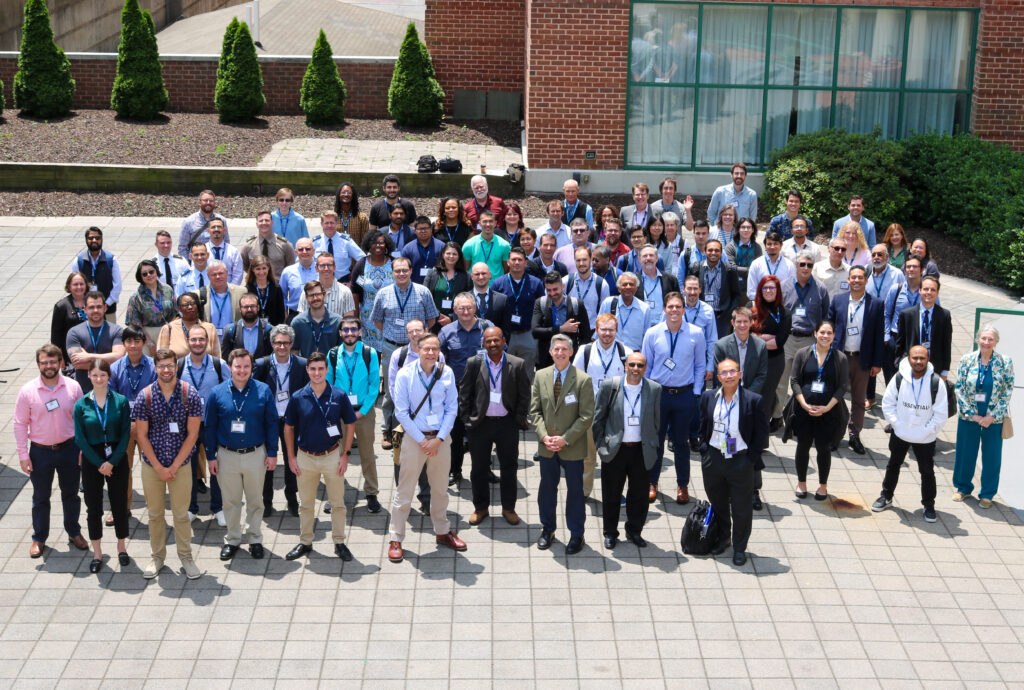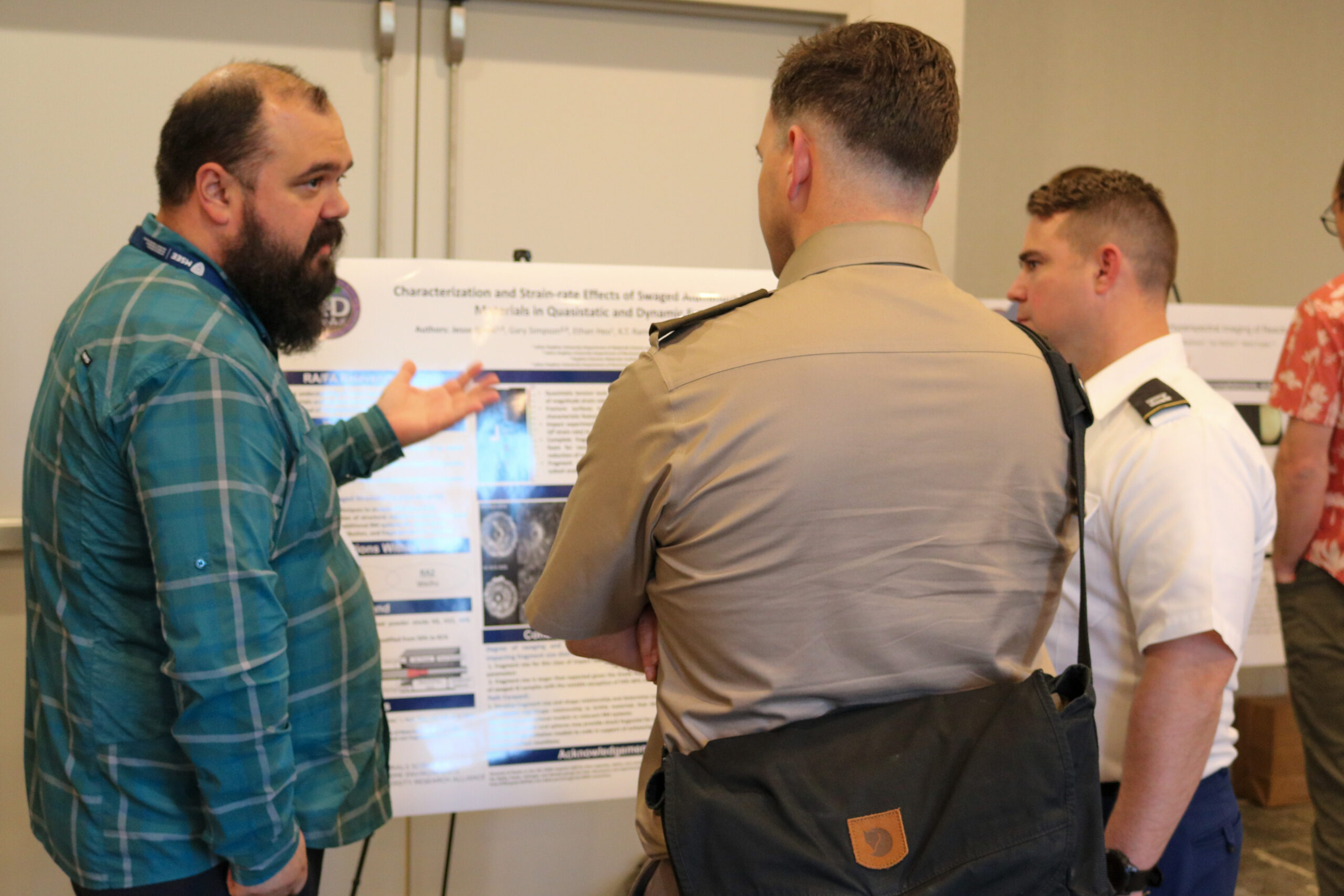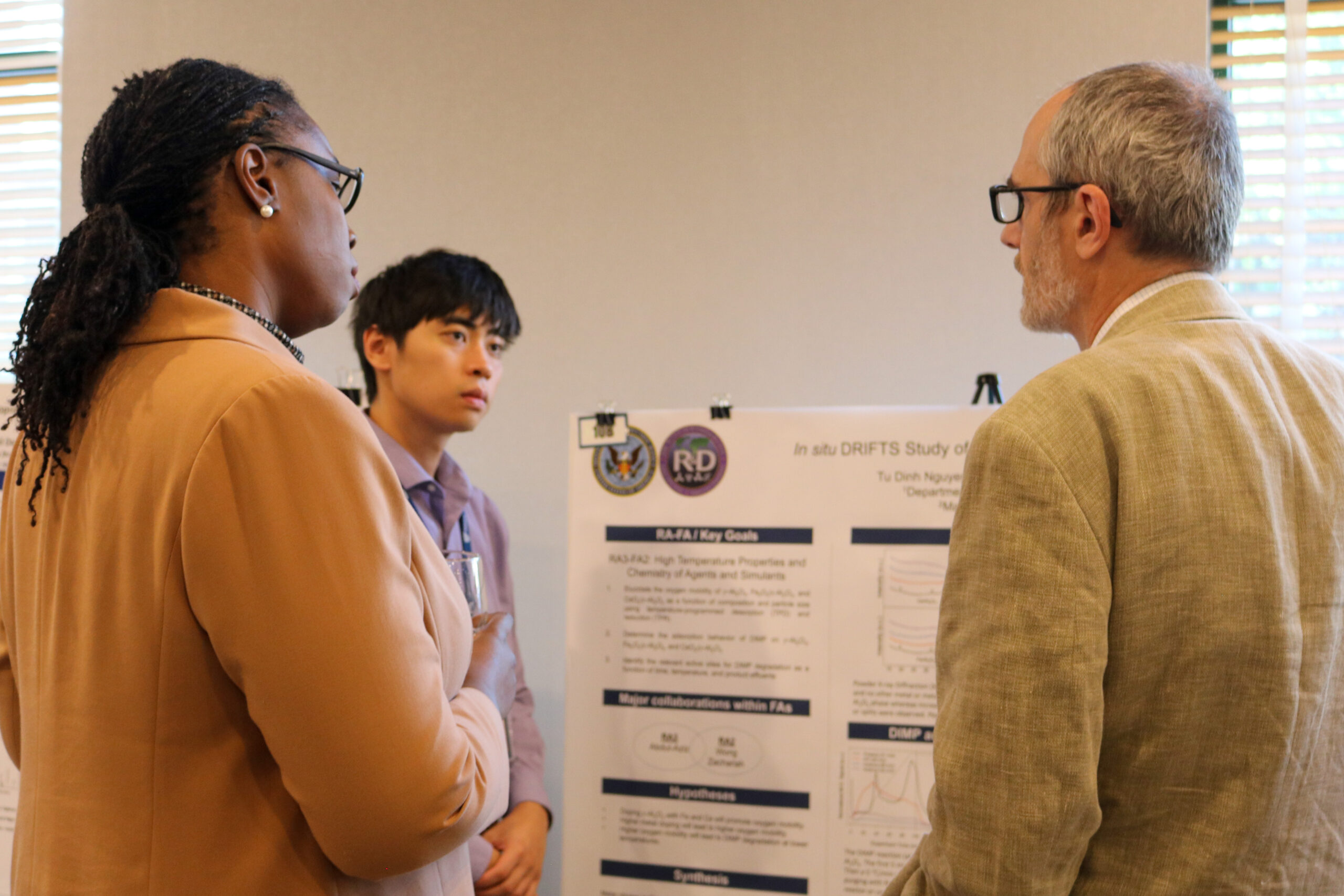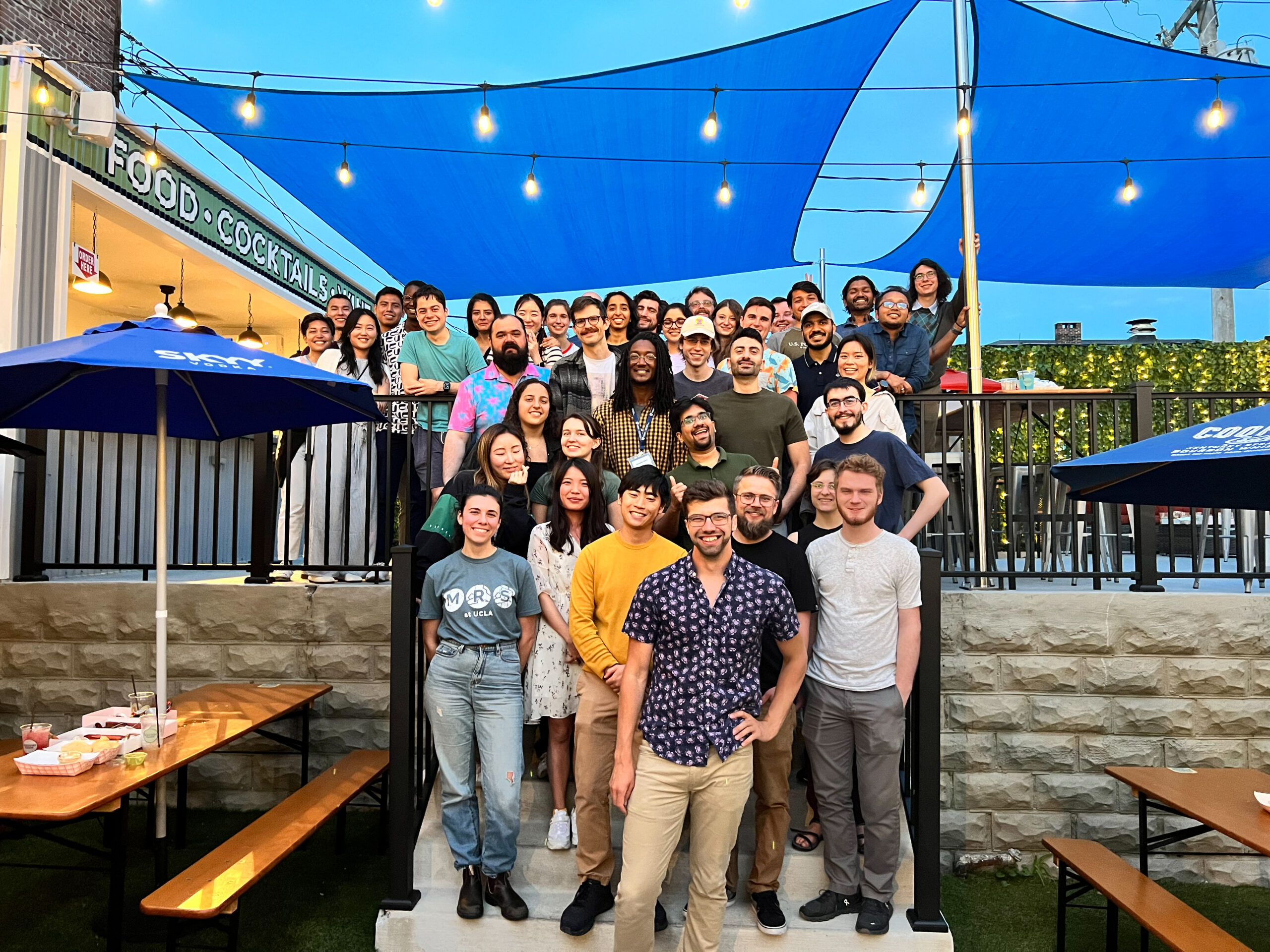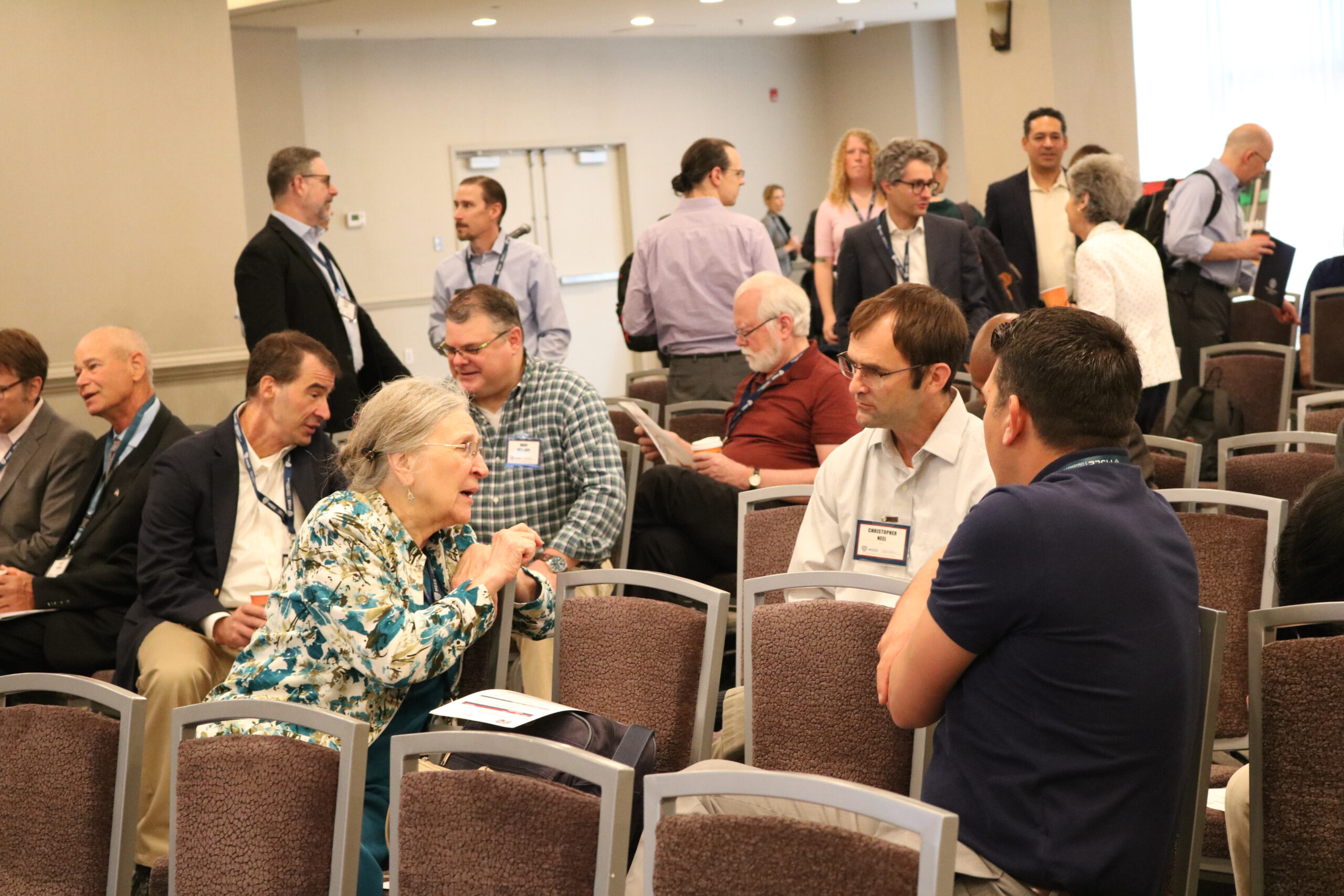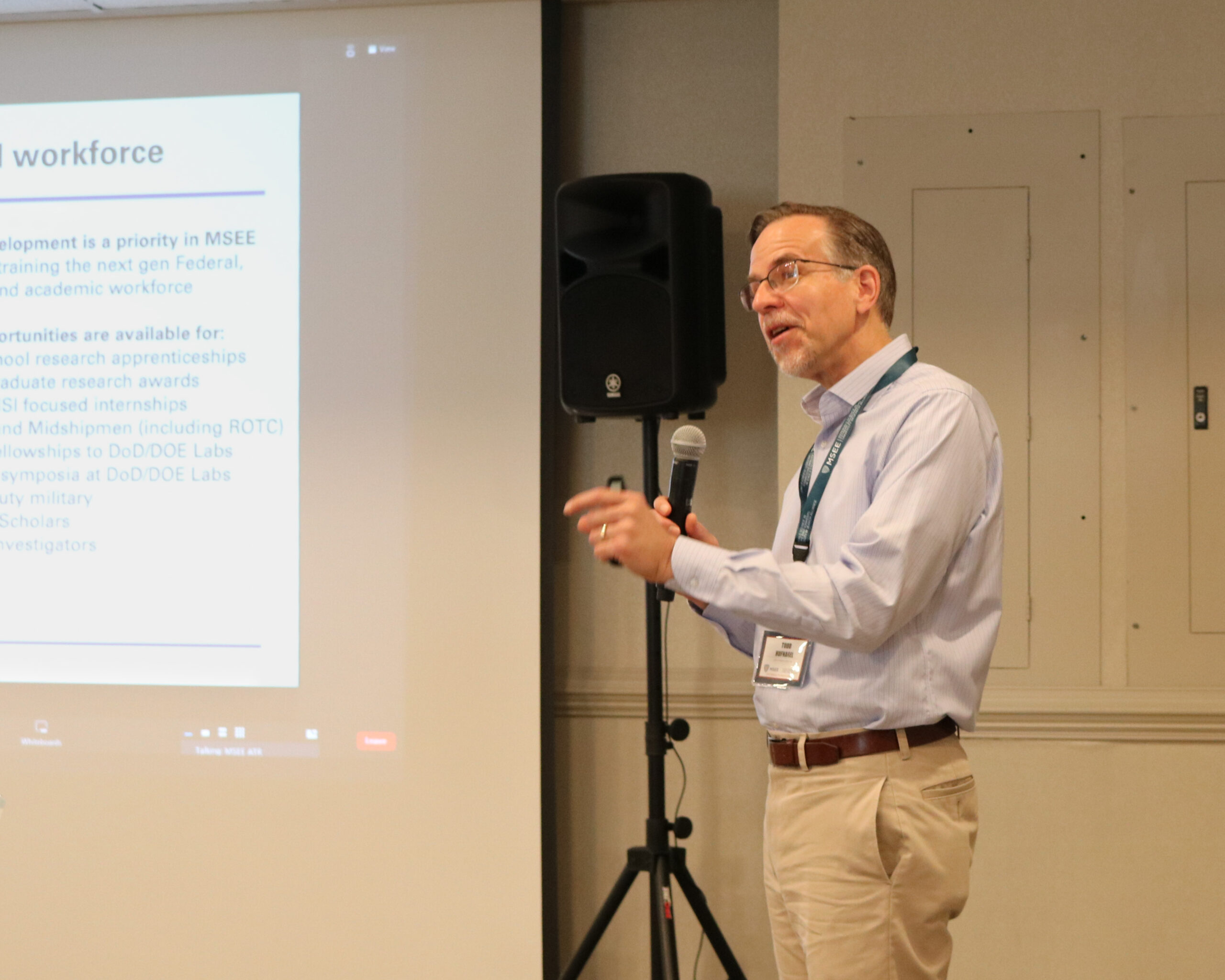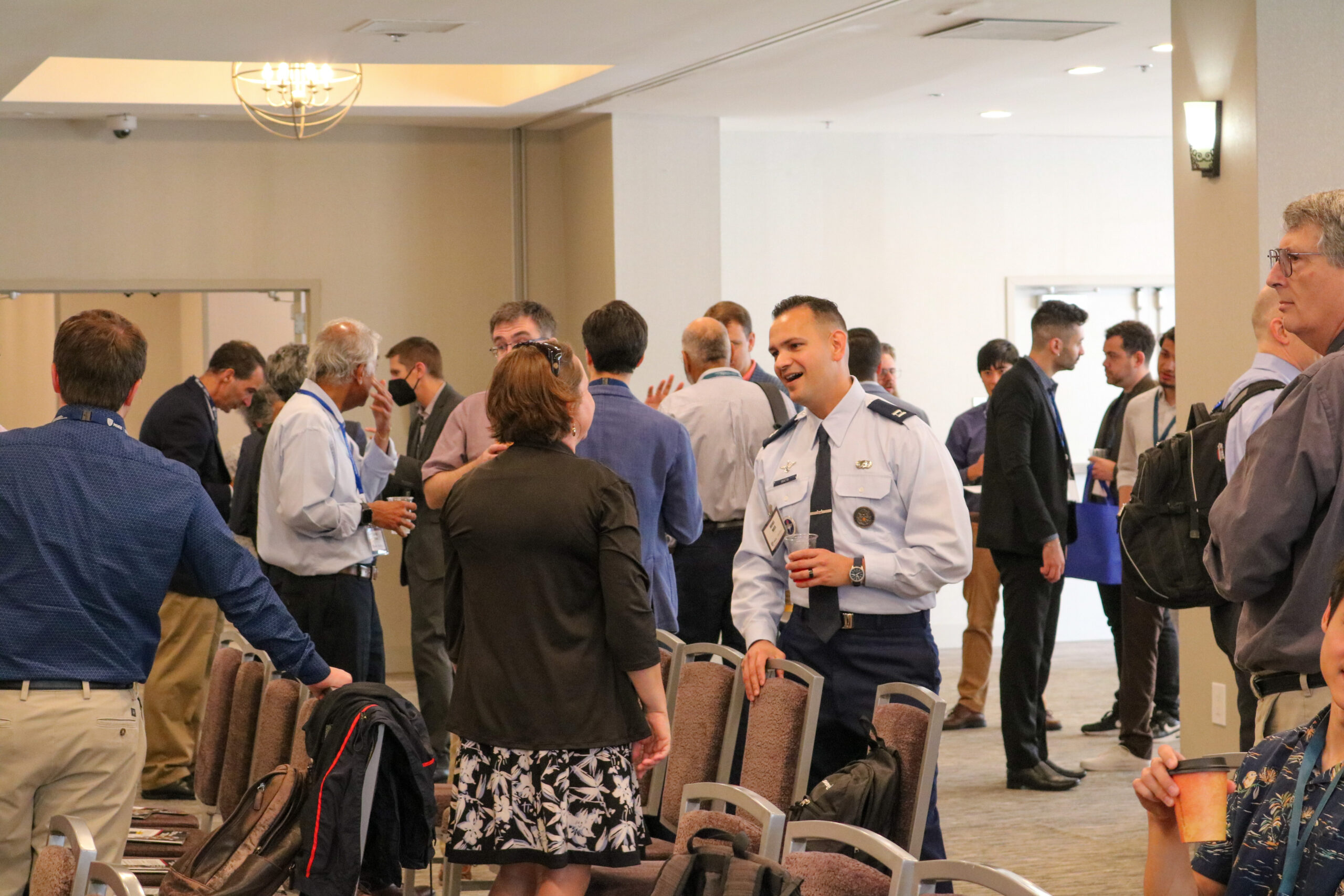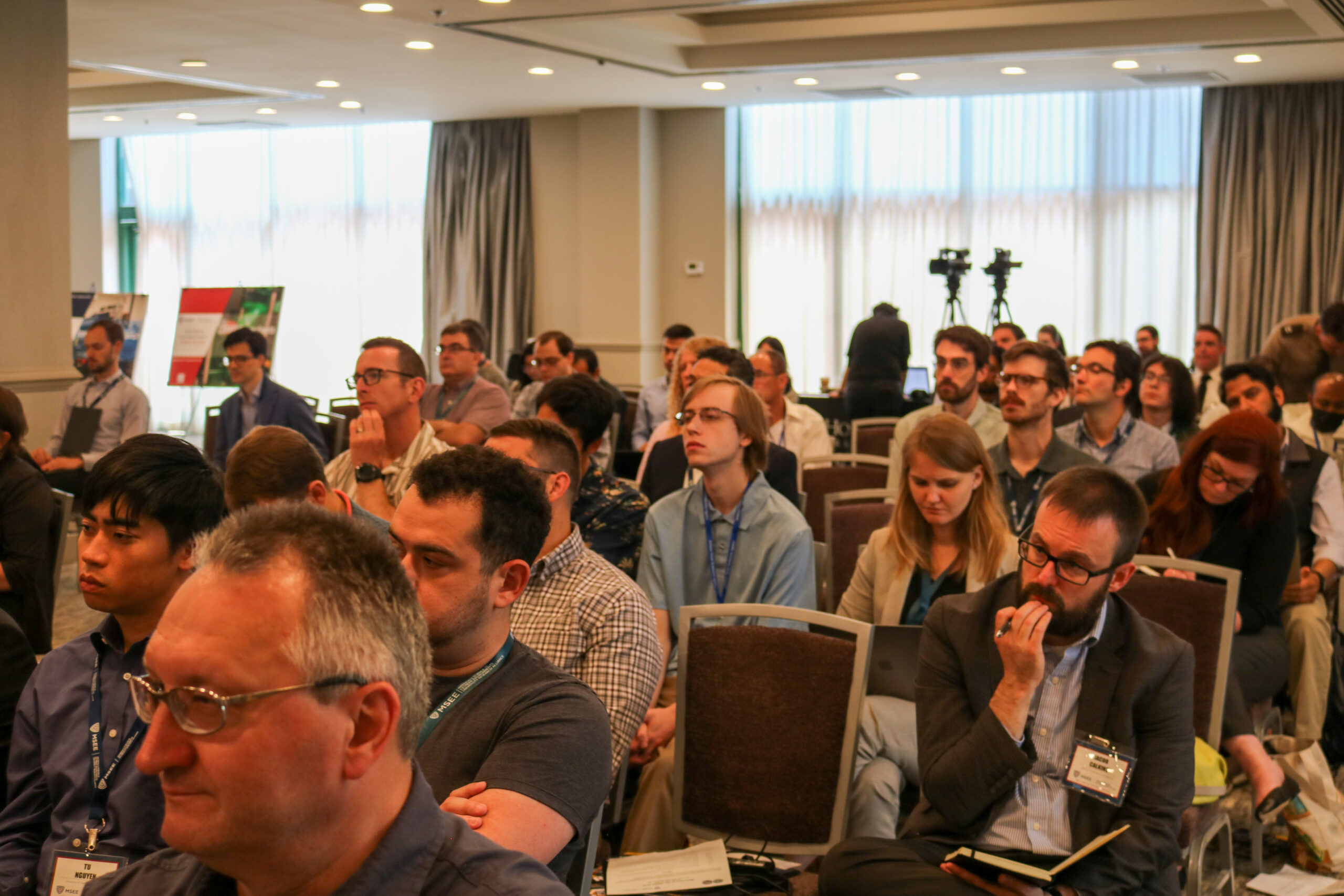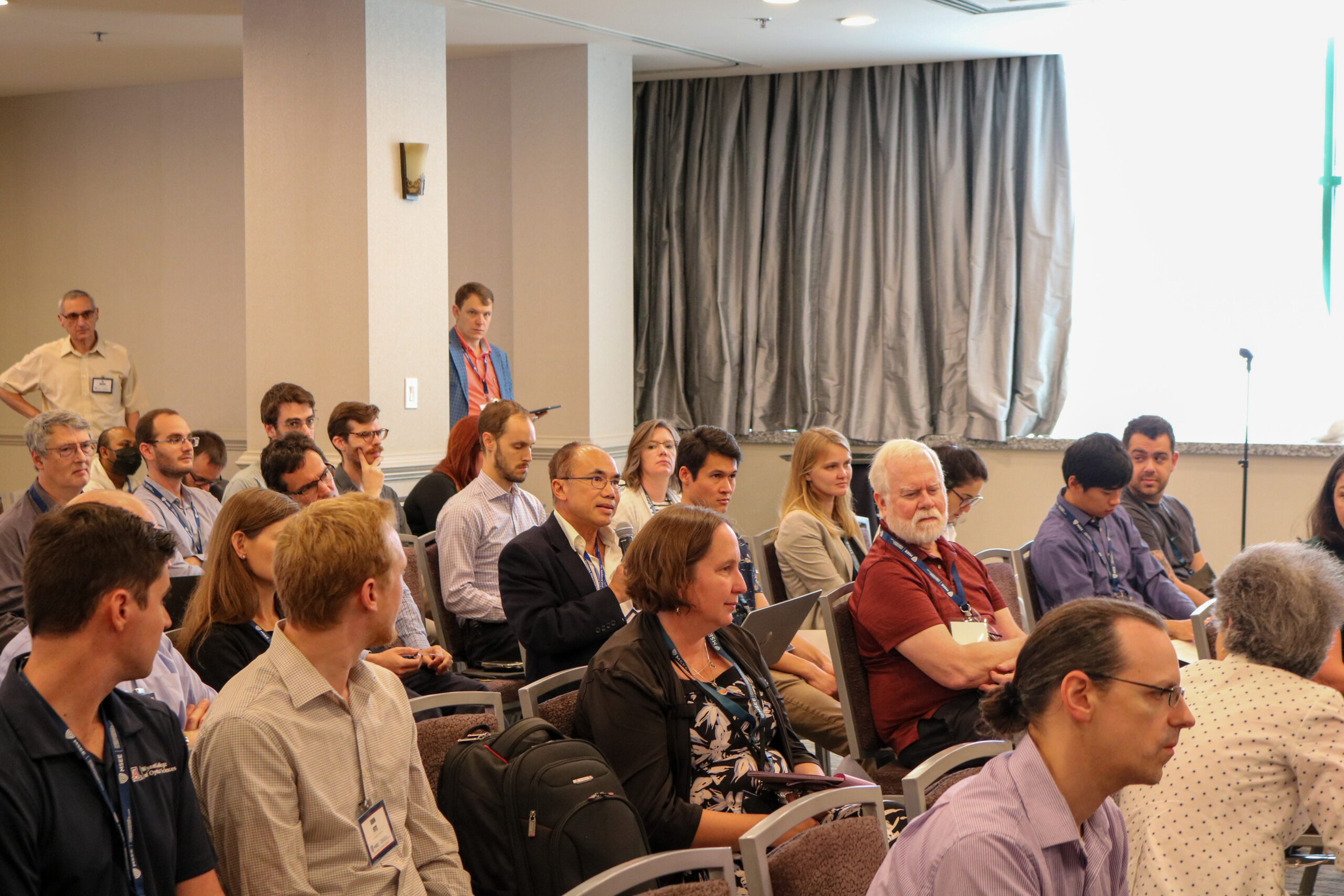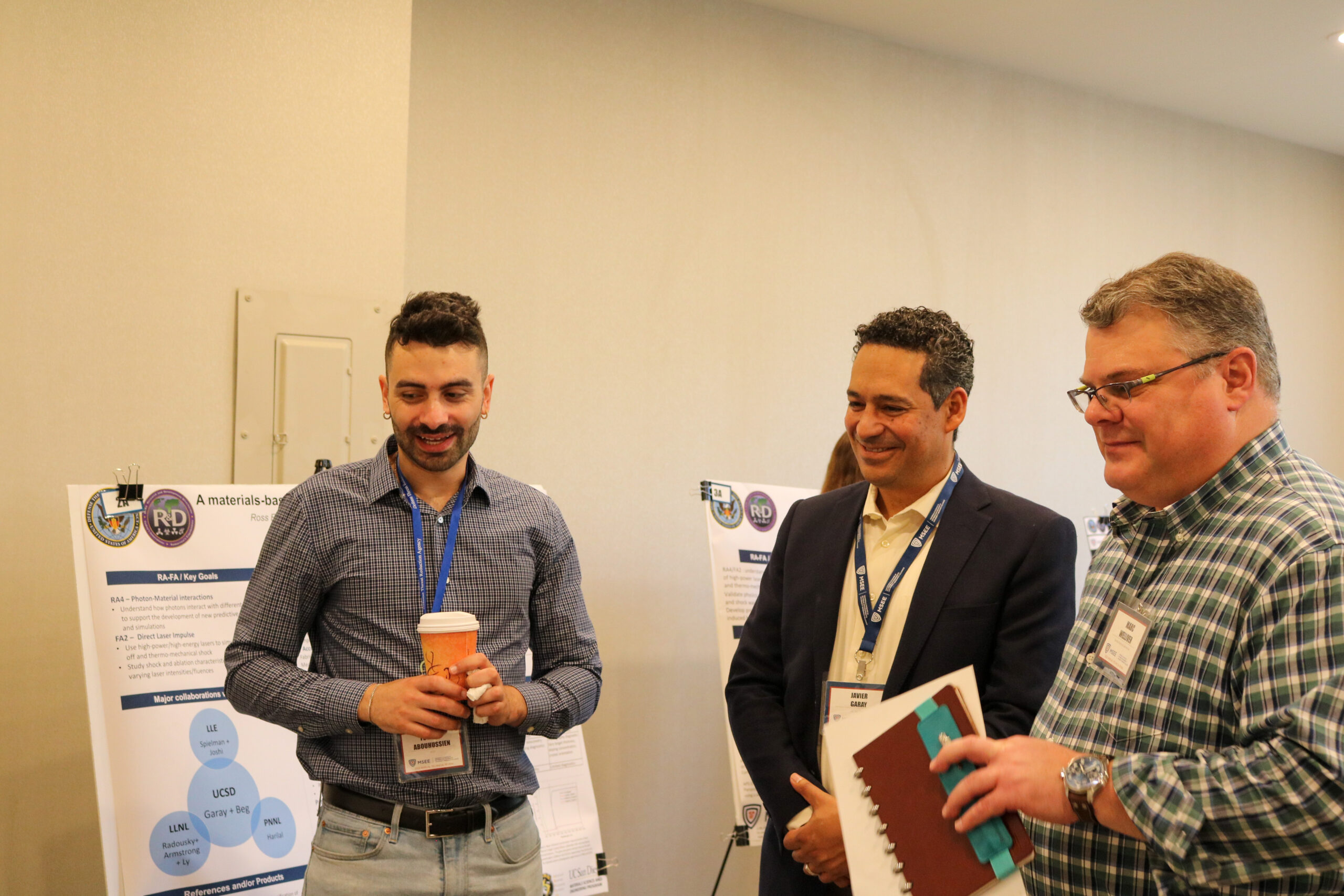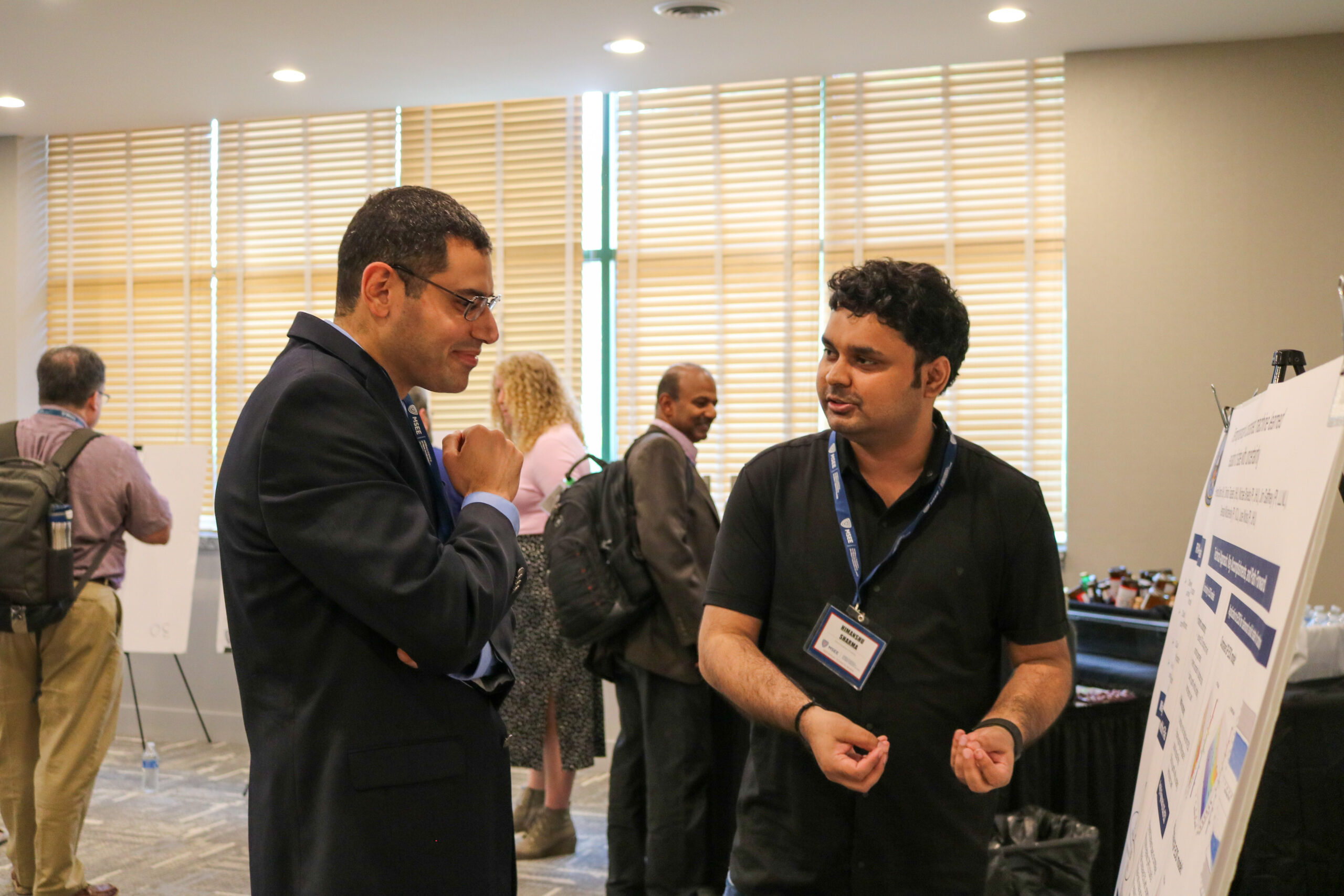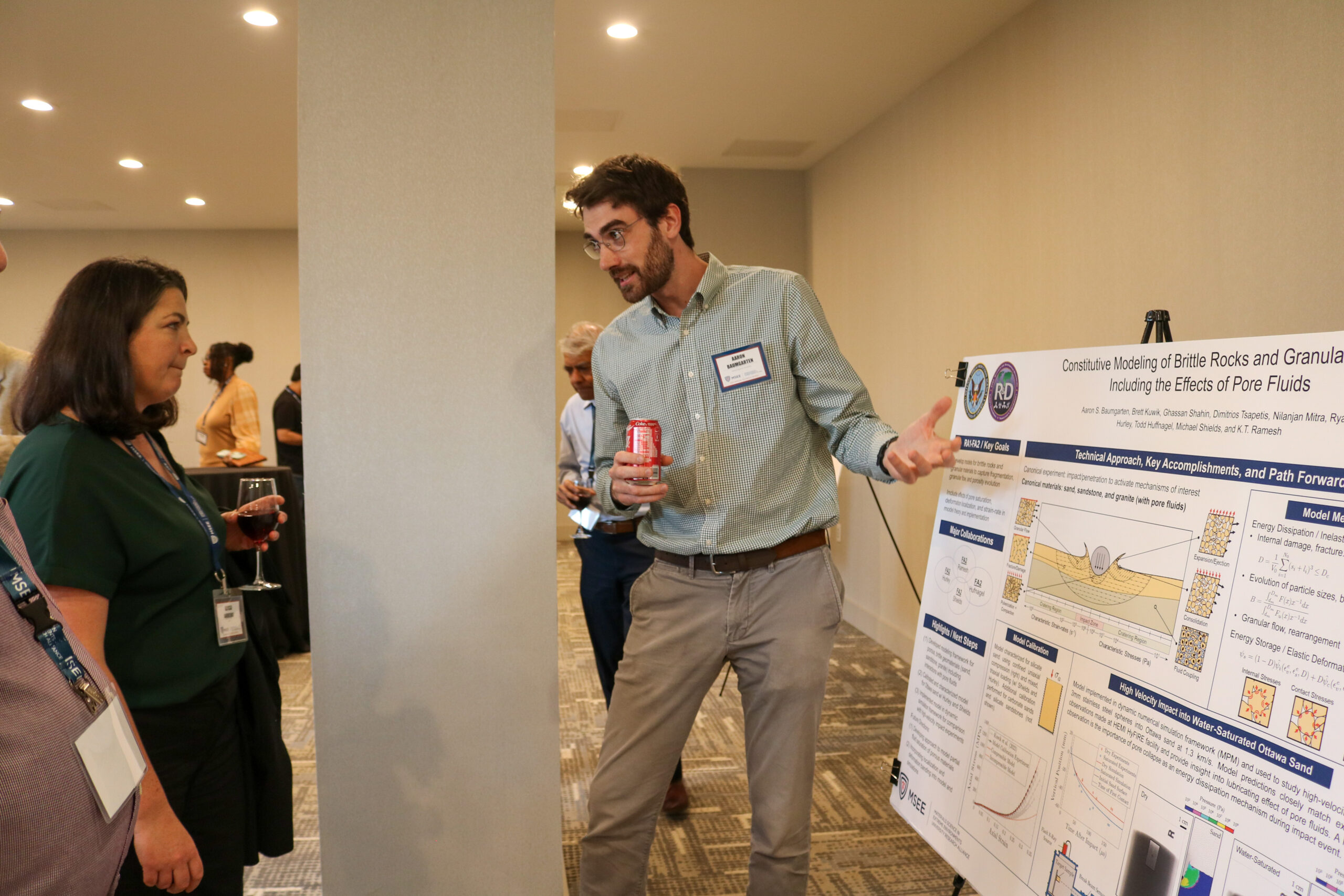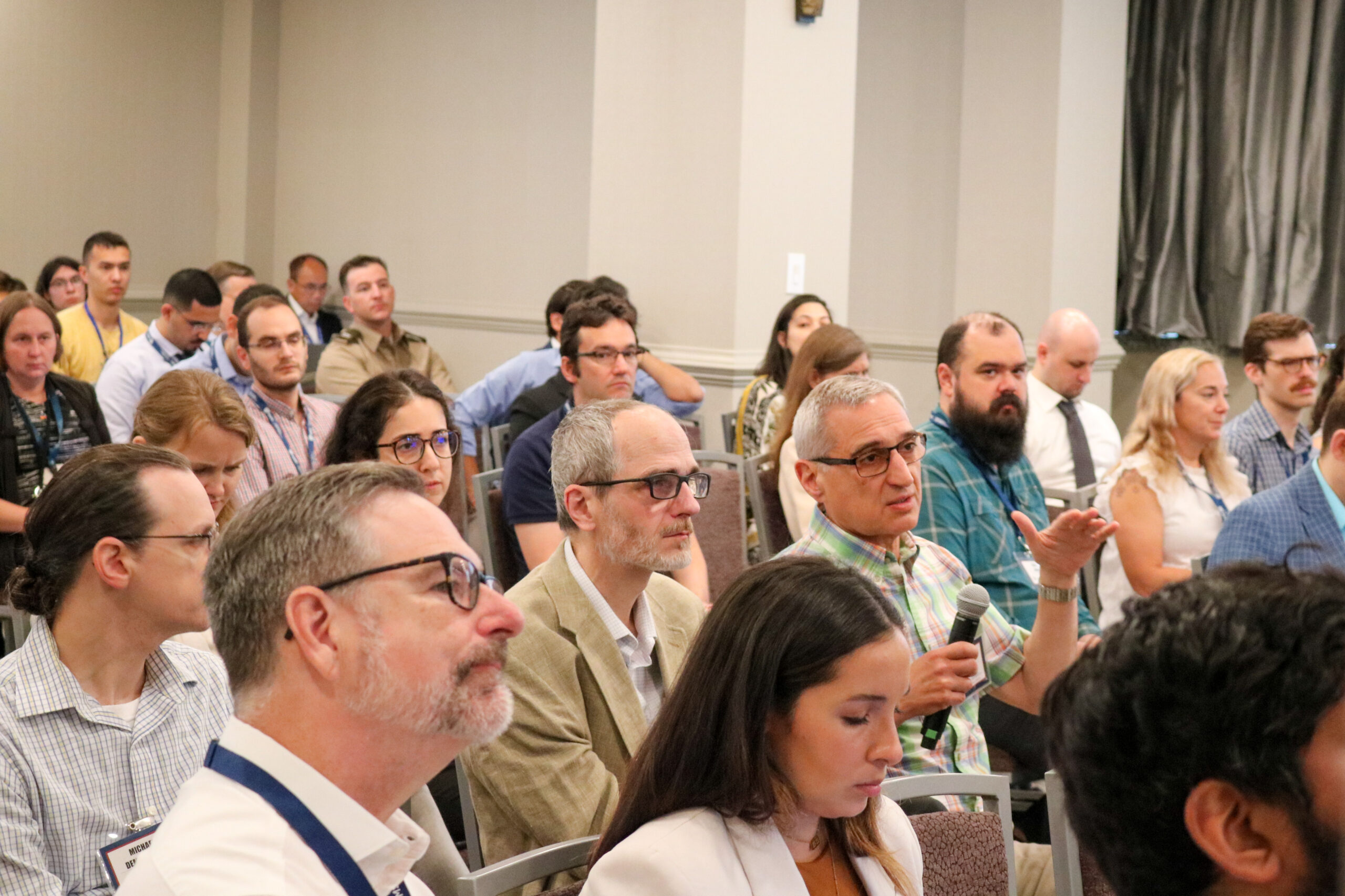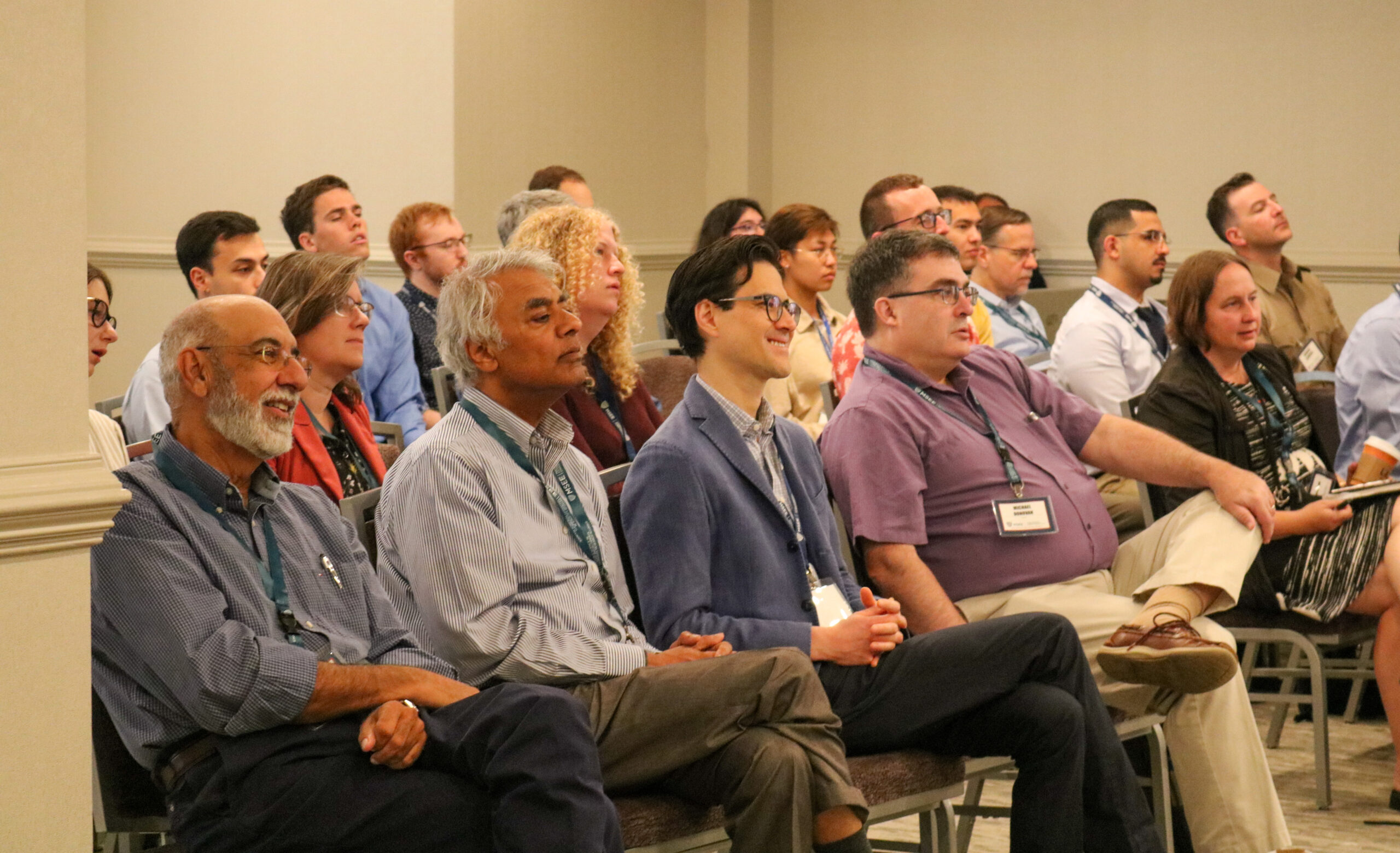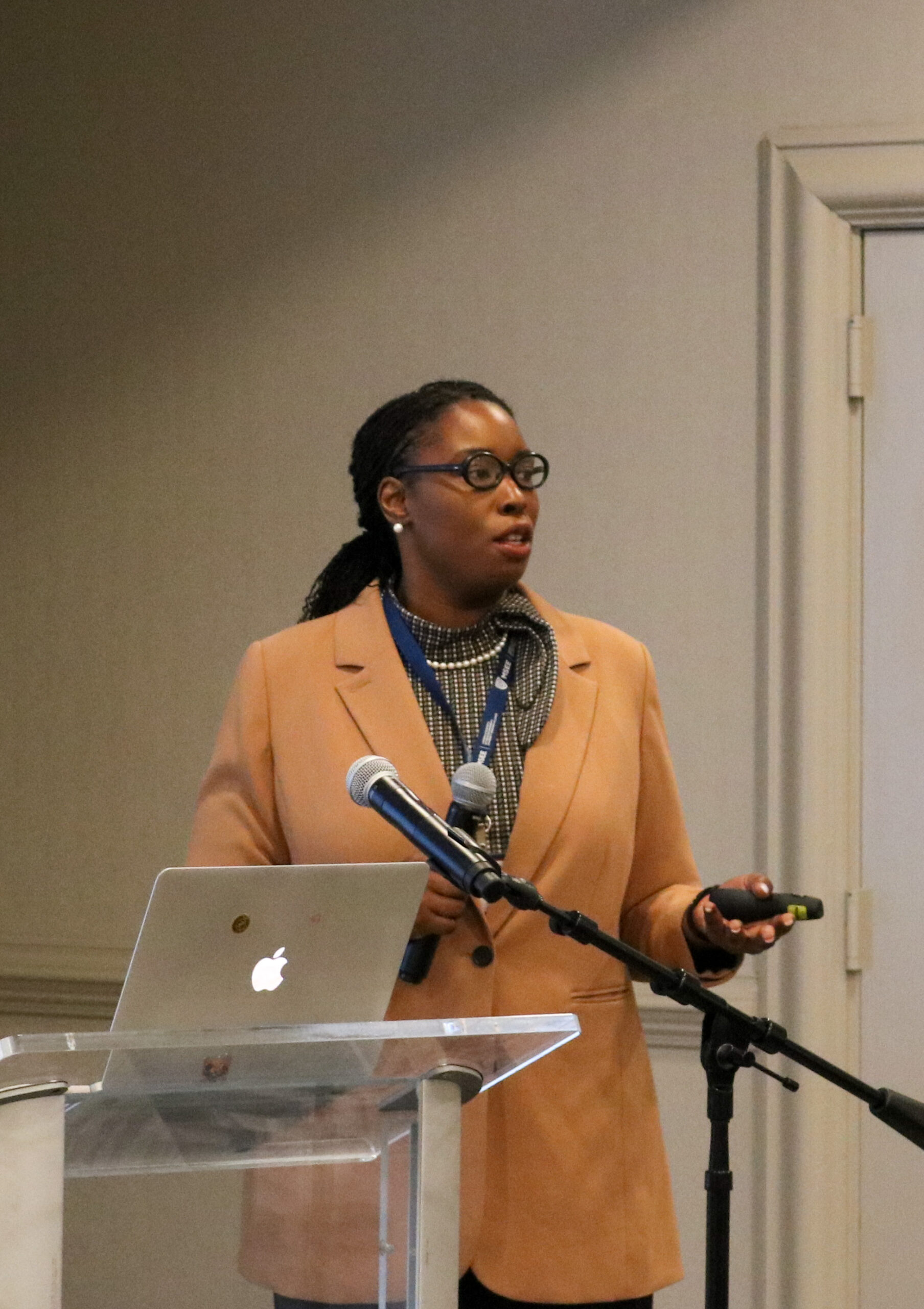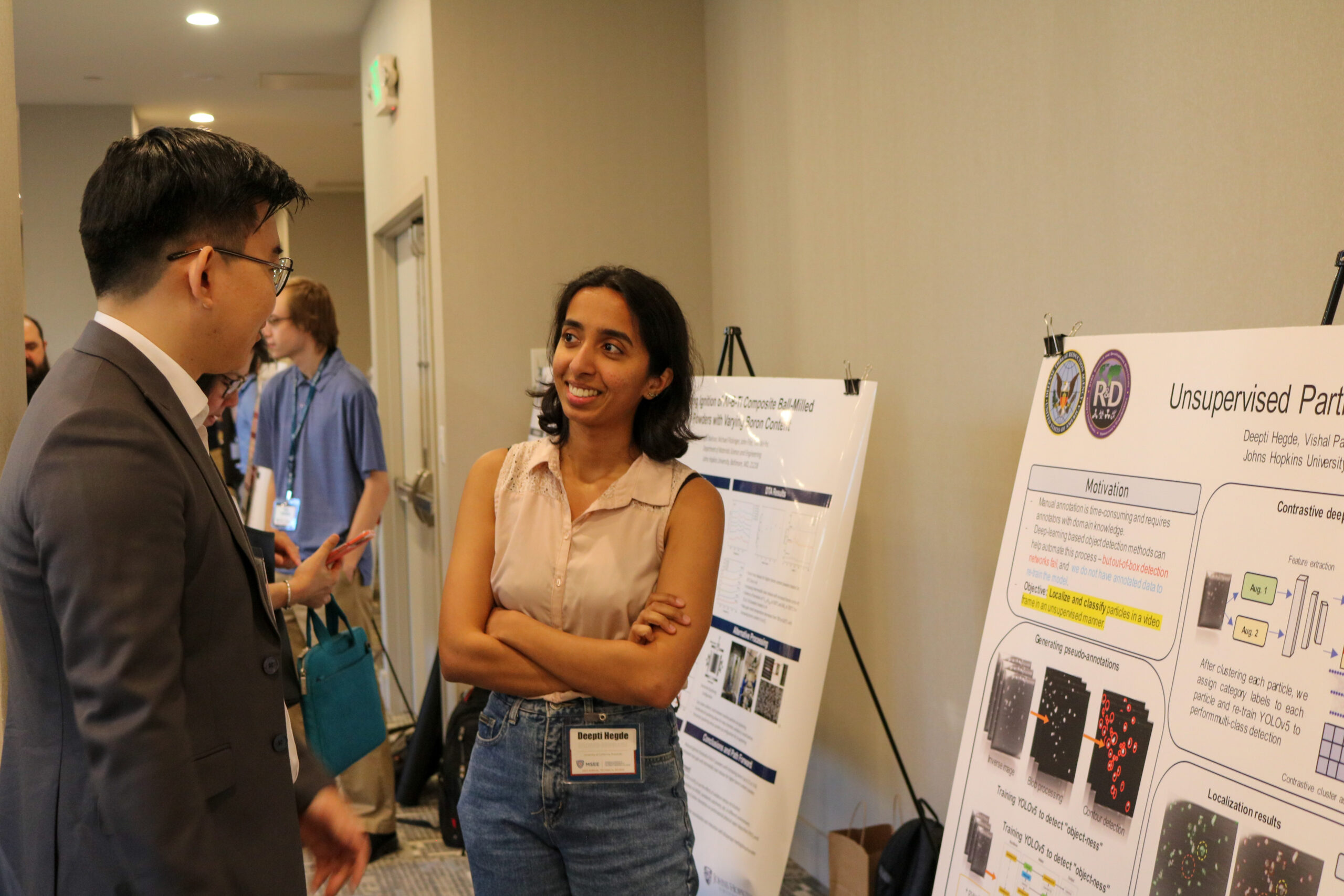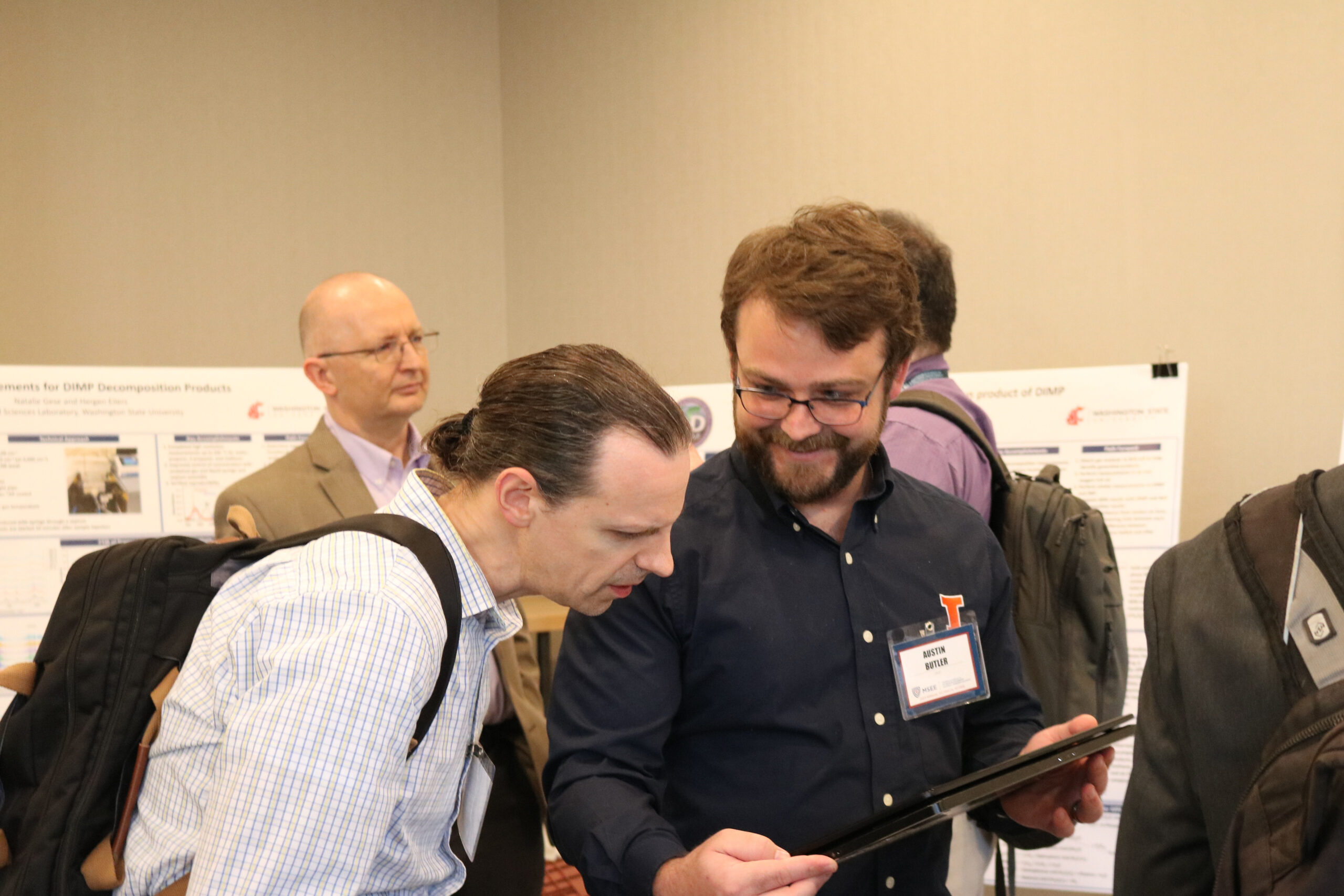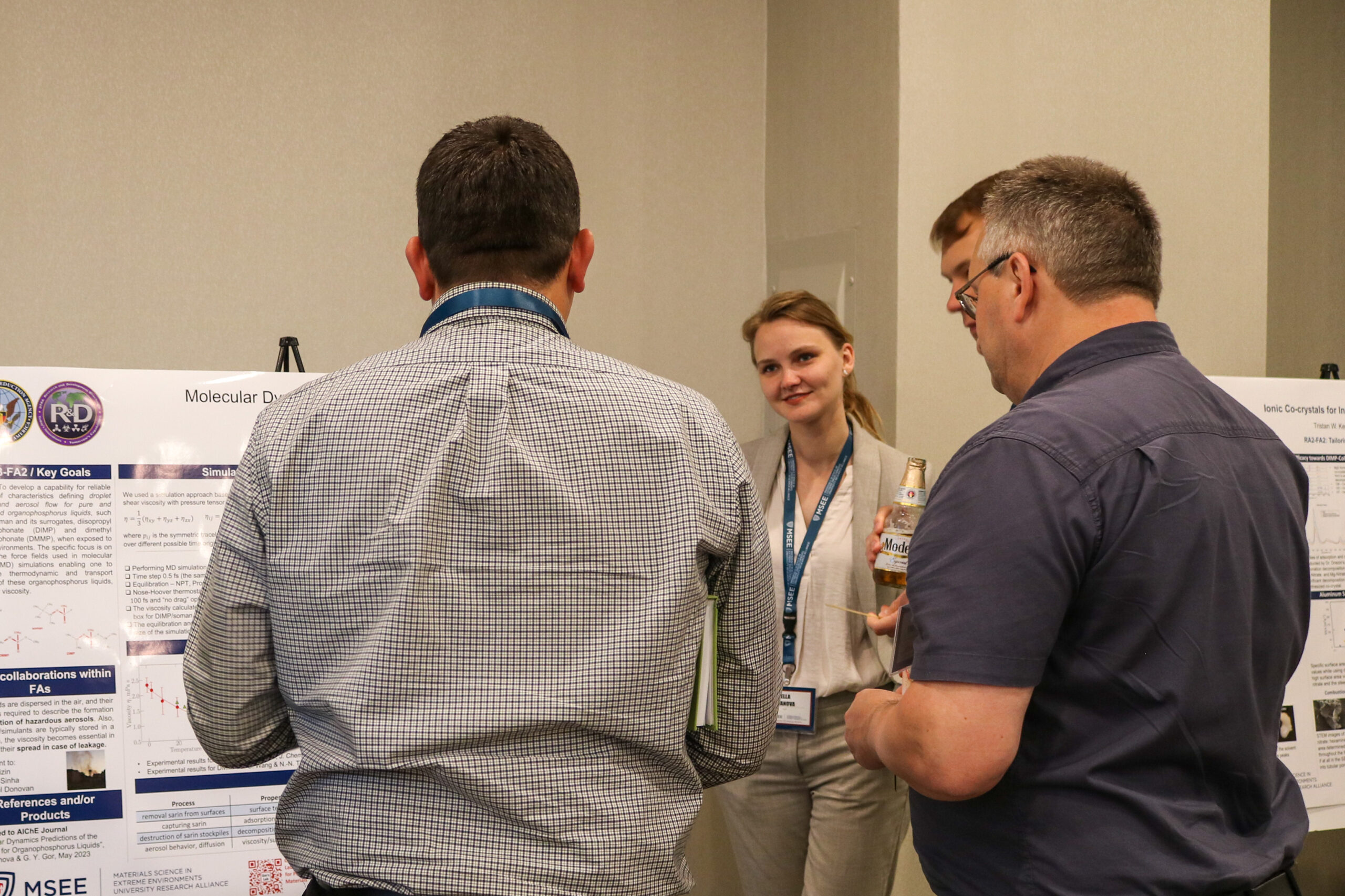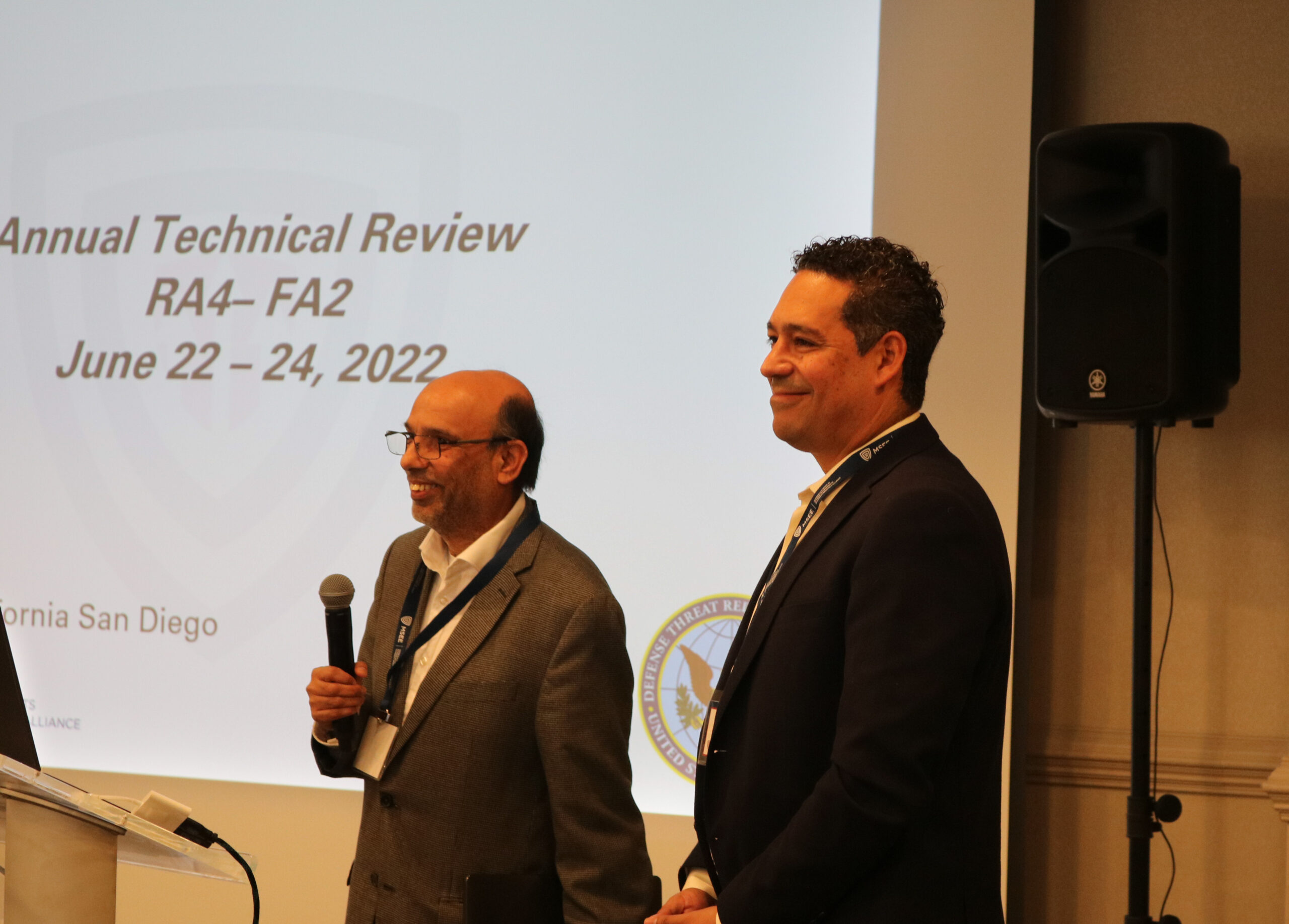Collaboration is a fundamental part of MSEE throughout the year, but the cross-institutional teamwork that makes this alliance so exceptional was on full display at this year’s Annual Technical Review (ATR).
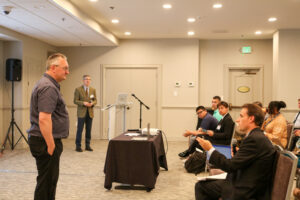
MSEE collaborators convened in Baltimore, Maryland from June 13–15 to share their progress and learn about the work being done by other members of the alliance. There were 120 in-person participants, as well as 25 virtual participants. Research area leads, principal investigators, postdoctoral researchers, and graduate students presented the year’s successes and challenges in each of MSEE’s focus areas.
After each of the 43 technical presentations, attendees (both virtually and in-person) were encouraged to ask questions of the presenters. These dialogues consisted of questions, suggestions, and potential avenues for collaboration and further study. Many attendees followed up with presenters throughout the multi-day event; it was not at all uncommon to see researchers discussing the finer points of their work over meals, during coffee breaks, or at poster sessions.
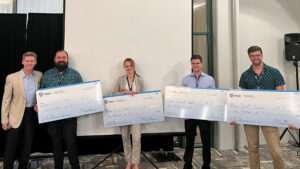
From left to right: Col. Cory Lane, Jesse Grant, Ella Ivanova, Ryland Wala, Brett Kuwik.
The first two days of the ATR were concluded with poster sessions, during which postdocs and graduate students presented posters, discussed their research with peers, and socialized over appetizers and drinks. Of the 52 posters entered, four best poster winners were decided by popular vote. The winners– Jesse Grant (JHU), Ella Ivanova (NJIT), Brett Kuwik (JHU), and Ryland Wala (UArizona)–were each given a $500 check, presented to them at the ATR Banquet by U.S. Air Force Colonel Cory Lane.
The 2023 Annual Technical Review featured a star-studded list of guest speakers. Rhys M. Williams, executive director of the Defense Threat Reduction Agency (DTRA), and Denis Wirtz, vice provost of research at Johns Hopkins University, gave opening remarks. The ATR Banquet featured guest speaker Sarah Nelson, the acting office director of the National Nuclear Security Administration’s (NNSA) Office of Experimental Sciences.
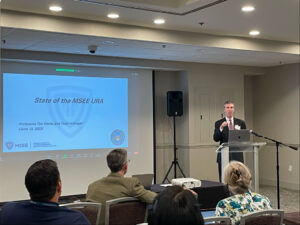
DTRA Executive Director Rhys M. Williams giving opening remarks. (image: Darnell Gardner)
Throughout each day’s events, MSEE collaborators received input from technical points of contact, members of MSEE’s science advisory board and research management board, and other key figures. Many noted the progression of MSEE’s research compared to years prior, as well as MSEE’s workforce development activities and sizeable population of graduate students.

